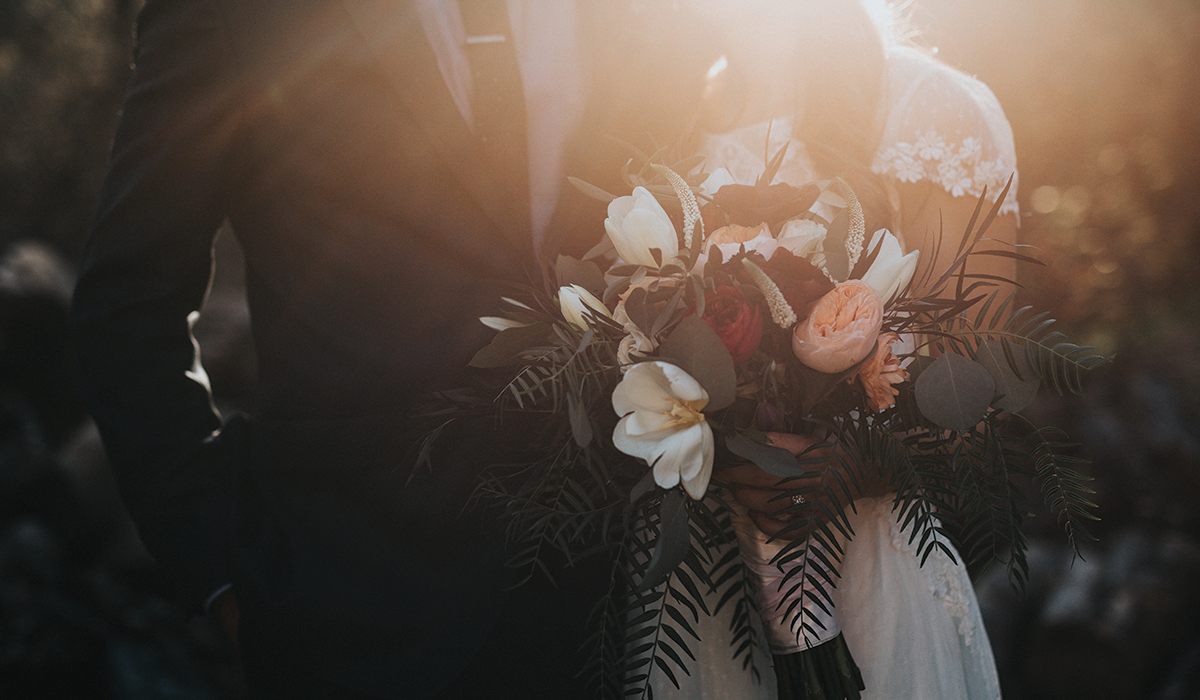Planning and Remembering Weddings, Part One

On this episode of the podcast, Dan and Rachael Clinton begin a conversation about weddings. What makes a wedding such a dramatic event? How do we, depending on the stage of life we find ourselves in, attend weddings? After remembering past weddings and looking ahead to Rachael’s own future wedding, they realize there is much we bring to these celebrations, both in our joy and gratitude for others and in our own heartache.
Dan opens this episode by noting that he doesn’t think they have done a bridal-oriented podcast before. He and Rachael hope to address how we go to a wedding, whether it’s our children getting married, a friend, or even our own wedding, and how we go whether we’re married or single. And, beyond going, how do we remember, anticipate, and engage at a wedding?
Rachael herself is getting married this fall and has been in the midst of planning a wedding for the past few months, so she is in a unique season where some of these themes are front and center in her life.
Dan reiterates his question of how we are to participate in weddings, and, beyond weddings, life’s major events—from retirement parties to baby showers—that carry great meaning. When we can know and anticipate what we’re coming into, we can make use of and participate in ways that lead to goodness and life. Dan then asks Rachael how she’s been thinking about her upcoming wedding.
Rachael responds by describing the cultural context she grew up in, how it relates to marriage and the fact that she has always loved weddings, especially the traditions her family holds. As a pastor, she also has a unique perspective on weddings as someone who has officiated multiple ceremonies.
Rachael: “I don’t think there’s anything we get to do as human beings as a ritual beside the birth of a child that has a kind of defiant joy that is a picture…it’s an image and a picture of what we’re meant for and what it means to be loved by God and is a celebration of love and the mystery of union.”
Looking back at his own wedding, Dan reminisces about the chaos surrounding the event. He tells of moments of tension, doubt, and the recognition of entering into something holy and beautiful.
Responding to a question, Rachael tells Dan she believes it is impossible to come to a wedding without your own heartache. She notes that she and the man she is marrying are both coming into this event having tasted heartache, betrayal, and loss. Some also come to a wedding having experienced the loss of marriage through death, divorce, or the “walking deadness” in the context of parallel living for many years. “It is a place of hope, faith, and love but it also stirs our hearts to longing and desire for what we’re most meant for.”
Rachel: “There have been many weddings where at the same moment I’ve felt tremendous joy and delight and gratitude to God that these people have found each other while at the same time feeling a deep ache and feeling the mockery of evil that you’ll never taste this kind of goodness.”
Dan acknowledges the sense of disappointment or judgment some bring to a wedding, whether they have a sense that their own marriage is not what they thought it was going to be, or that they did not know what they were getting into. He then goes on to explain that there is an “unseen world” happening in the marriage of two people that mirrors the Trinity, and as such it is the most important event on earth.
Dan: “You need to expect that the passage of this event is going to have a lot of energy, of totemic power, that draws the seen and unseen world into a complex event that spells for many people a kind of drama they don’t know they’re entering.”
Concluding the episode, Dan asks Rachel how much memory of other weddings has entered into the planning of her own. Rachel says that quite a bit has impacted her and her fiance’s planning as they both have officiated and been part of numerous weddings, which has afforded them a more intimate perspective into the event. Most importantly, for their own wedding, they want to be present and intentional around what is meaningful to them and the people who will bear witness to their marriage.
